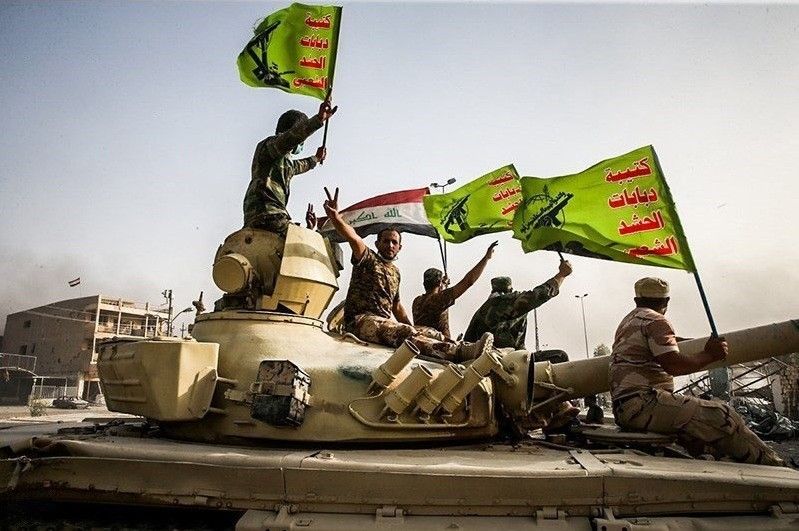By Raya Jalabi
ERBIL, Iraq, June 24 (Reuters) – Iraq’s Popular Mobilisation Forces, an umbrella grouping of mostly Iran-backed Shi’ite militias, said on Sunday it would not remain silent over an alleged U.S. air strike it said killed 22 of its members across the border in Syria last week.
“To the Americans we say … we will not be quiet about this attack,” senior PMF commander Jamal Jaafar Ibrahimi, known by his nom de guerre Abu Mahdi al-Mohandes, said in a video message.
In a news conference, Mohandes said the PMF had collected fragments of the missiles used in the strike, which he said proved it was a U.S. attack.
This followed an accusation by the PMF on Monday, that the U.S. air strike wounded a further 12 of its members in the Syrian border town of Albu Kamal.
The United States has denied involvement in the strike. The Iraqi military said none of its troops tasked with securing the Iraqi-Syrian border had been hit by the air strike.
Iraqi forces hit by the air strike had not made contact nor coordinated their presence there with Iraq’s Joint Operations Command, the military added.
The PMF bolstered Iraq’s security forces during their battle to retake a third of the country from Islamic State, helping secure victory against the militants. They were later formally integrated into Iraq’s official security structure.
Though Iraq conducts cross-border strikes against Islamic State positions in Syria, its security forces do not maintain a ground force. However, several PMF militias have supported Syrian government forces on the ground for years.
Mohandes is one of Iran’s most powerful allies in Iraq. He formerly headed the Kataib Hezbollah militia, one of the closest to Tehran. The two brigades hit in last week’s air strike were affiliates of Kataib Hezbollah.
The dispute comes amid escalating tensions between the United States and Iran, precipitated by U.S. President Donald Trump’s decision to pull out of a 2015 nuclear agreement.
Washington last month said it would impose new economic sanctions on Tehran, raising the prospect of direct military confrontation between their allies in the region.
(Reporting by Raya Jalabi; Editing by Ahmed Aboulenein and Jon Boyle)


